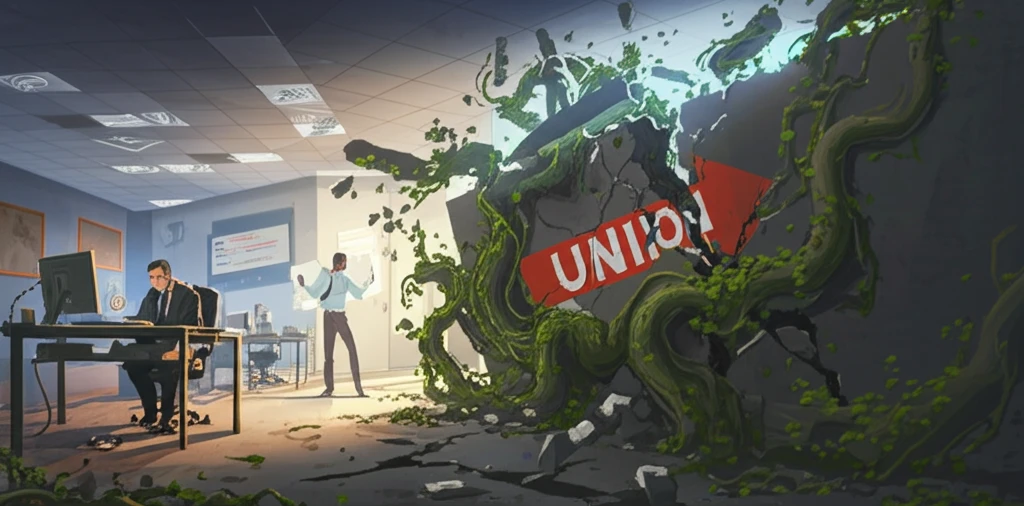
Workplace Harmony? How Unions Can Bridge the Political Divide
"New research reveals surprising ways labor unions foster political alignment between workers and managers, challenging conventional wisdom about workplace conflict."
In an era defined by deep political polarization, the workplace often becomes another battleground for ideological clashes. Conventional wisdom suggests that labor unions, while advocating for workers' rights, might exacerbate these divisions by creating an 'us vs. them' dynamic between employees and management. However, groundbreaking new research paints a surprisingly different picture, revealing the potential for unions to actually bridge political divides and foster a more unified workplace.
The study, which analyzes data from over 6,000 union elections and hundreds of thousands of campaign contributions, uncovers a fascinating trend: unionization can lead to a convergence of political ideologies between workers and managers. This challenges the notion that unions inevitably create conflict and instead suggests they can be a catalyst for understanding and alignment.
This article delves into the key findings of this research, exploring the mechanisms through which unions can shape political attitudes, the implications for workplace dynamics, and the broader consequences for political polarization in society.
Bridging the Divide: The Unionization Effect

The study's core finding revolves around the impact of unionization on political campaign contributions. By examining data from 1980 to 2016, the researchers discovered that when workplaces unionized, both workers and managers showed a shift in their political donations. Specifically, there was a noticeable increase in contributions to Democratic candidates relative to Republican candidates.
- Increased understanding: Unions provide a platform for workers and managers to engage in dialogue and understand each other's perspectives.
- Shared interests: Collective bargaining can highlight shared economic interests, leading to a sense of common ground.
- Contact theory: Increased interaction and cooperation can reduce prejudice and foster empathy.
Beyond the Bottom Line: The Social Impact of Unions
These findings highlight the potential for labor unions to play a more significant role in shaping society than previously thought. By fostering political alignment and bridging ideological divides, unions can contribute to a more unified and productive workplace environment. As political polarization continues to be a pressing issue, understanding the mechanisms that promote understanding and cooperation becomes ever more critical.
